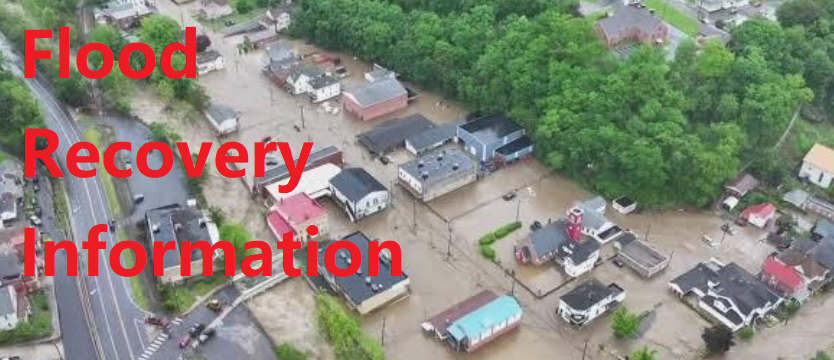August 3rd, 2015 by WCBC Radio
The path to a bachelor’s degree in nursing may be smoother – and up to $13,000 less expensive – thanks in part to nearly $2.5 million in grants that Frostburg State University has received to develop new collaborative programs.
The Maryland Higher Education Commission awarded the grants to help FSU increase the number of nurses with bachelor’s degrees in Maryland through FSU’s online nursing programs in partnership with the state’s community colleges. The Maryland Health Services Cost Review Commission provides funding to MHEC for these programs, which are part of the state’s Nurse Support Program II to help educate nurses at Maryland institutions.
Currently, students in FSU’s Bachelor of Science in Nursing program must complete their RN training elsewhere, a process that often requires three years, with another 18 months at FSU, if the program is taken full time. Two programs are being developed that work in collaboration with community colleges to ease the transition. “You don’t have to wait,” said Dr. Heather Gable, chair of the Department of Nursing.
Pre-nursing students at FSU no longer have to transfer to other institutions to finish a nursing degree or put off obtaining a bachelor’s after earning an associate degree elsewhere.
FSU’s partnership with Allegany College of Maryland reduces the time it takes to complete a Bachelor of Science in Nursing. Following one year of general education courses on campus in Frostburg, students will complete two years at ACM for an associate degree followed by online nursing courses at FSU, plus a practicum, to earn a Bachelor of Science in Nursing.
“Freshman students will come into Frostburg State, and get all of their general education classes under their belt in their first year,” Gable said. “They will apply to the Registered Nurse program at Allegany College of Maryland and at the same time, take Bachelor of Science in Nursing courses at Frostburg.”
These courses prepare students for the National Council Licensure Examination for Registered Nurses, or NCLEX-RN, paving the way toward baccalaureate degree classes. The first cohort of students will be accepted into the collaborative bachelor’s degree program in spring 2016. The grant also funds a coordinator to develop a mentorship program that helps new students as they enter the nursing programs.
“Students will have a faculty member working with them, teaching courses that they’re in,” Gable said.
The program builds on the Commission on Collegiate Nursing Education-accredited RN-BSN program at FSU and provides a way for freshman students and high-school graduates to pursue a baccalaureate nursing degree from start to finish without interruption.
FSU will also partner with Community College of Baltimore County sites in Catonsville and Essex to develop a seamless transition from an associate degree to a bachelor’s degree in nursing through a $1.5 million grant over the next five years through its Associate to Bachelor’s program.
Students can simultaneously start the nursing program at CCBC and FSU’s online BSN, after completion of general education courses at CCBC. The grant is designed to adapt this model to partner with five other Maryland community colleges over the next five years.
“It gives students a pathway to pursue their baccalaureate degrees as other traditional BSN degree students are able to do,” Gable said.
Once nursing students earn bachelor’s degrees at Frostburg, they can enroll in the online MSN program to obtain a Master of Science in Nursing, bridging a gap in nursing faculty in Maryland and throughout the region.
“I applaud our nursing faculty’s initiative in seeking external funding that enables us to expand enrollment in what is already our fastest-growing program. FSU graduates will help to meet a critical workforce need in health care," said FSU Interim President Thomas L. Bowling. “Our partnerships with Allegany College of Maryland and CCBC will strengthen our ability to provide affordable nursing education.”
A bachelor’s in nursing helps students understand further the complexities of healthcare and the healthcare system, develop leadership skills and provide better care for patients. The National Advisory Council on Nurse Education and Practice recommends that 66 percent of nurses in Maryland should have a bachelor’s degree by 2010, but the actual number is closer to 45 percent.
Students who opt for the partnerships with ACM or CCBC could save over $13,000 in tuition and fees compared to the traditional path to a BSN. FSU’s RN to BSN program is already recognized for its affordability, having achieved a ranking of fifth nationally as a Best Buy for Online Bachelor’s in Nursing from GetEducated.com, a consumer organization.
MHEC also awarded a grant to assist FSU in developing a graduate nursing program that features tracks for family psychiatric and mental health nurse practitioners and family nurse practitioners. FSU’s current Master of Science in Nursing has tracks for nursing faculty and administration. This program will be subject to approval by the Maryland Board of Nursing, MHEC and the University System of Maryland. FSU is in the process of recruiting faculty to develop and implement this program.



















